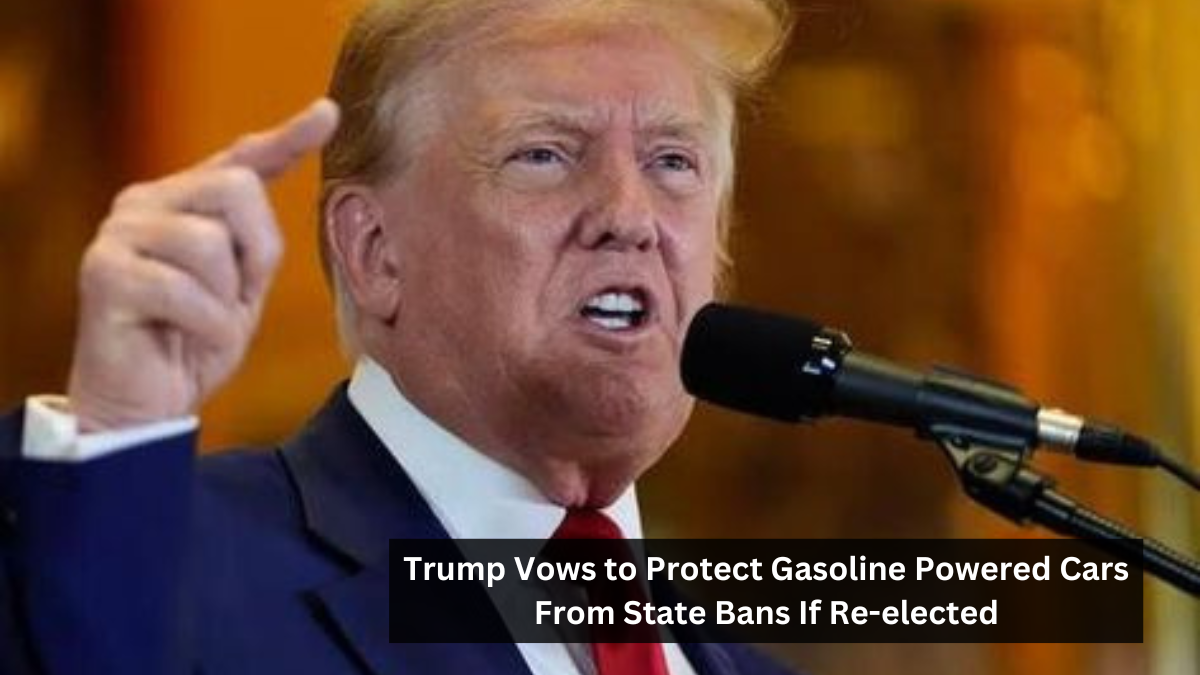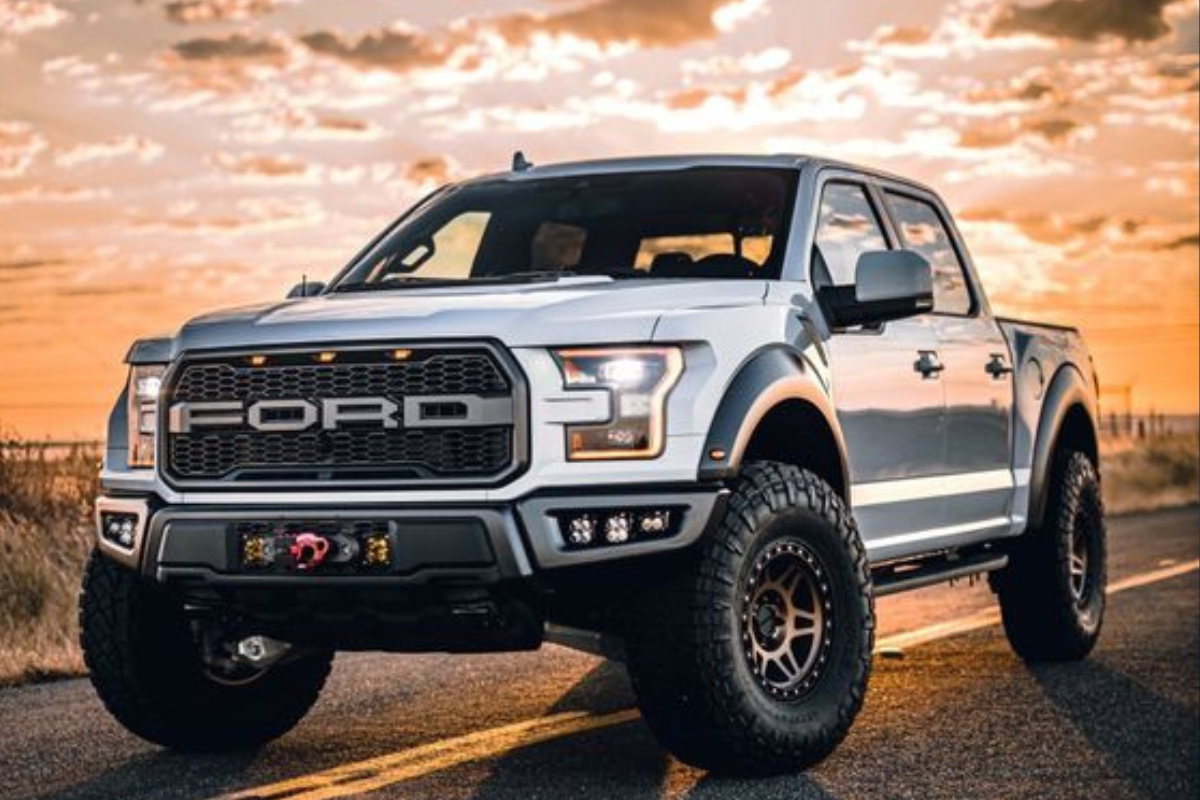Donald Trump’s recent assertion that no state would be allowed to ban gasoline-powered automobiles or trucks has rekindled a heated discussion about the future of the auto industry and environmental policies in the United States. Speaking at a rally in Saginaw, Michigan, Trump clarified that if re-elected, one of his top priorities will be to reverse state-led initiatives to shift away from gasoline-powered automobiles.

Trump’s statements are part of a bigger hostility to the push for electric cars (EVs), which is a key component of President Joe Biden’s environmental plan. Biden has set lofty targets, including having 50% of new vehicles sold in the United States be electric by 2030, aided by tax breaks and federal funding. California has proposed phasing out gasoline-powered cars by 2035.
Trump’s pledge to preserve gasoline-powered vehicles, on the other hand, underscores his larger attitude on deregulation and his commitment to prioritizing American manufacturing jobs—an subject of particular importance to Michigan, a key swing state that is home to the nation’s major automakers.
The Backdrop: California’s 2035 Ban
Trump’s address was a direct response to California’s efforts to impose environmental requirements for autos. In 2022, the state passed a proposal to prohibit the sale of new gasoline-powered vehicles by 2035. This decision was heralded as a big success for environmentalists and a key step toward lowering pollution. The state has also requested a waiver from the Environmental Protection Agency (EPA) under the Clean Air Act, allowing it to carry out this requirement. Over a dozen additional states have implemented or explored similar legislation.
California’s tough attitude is based on a commitment to battle climate change and reduce air pollution. The transportation sector is one of the most significant contributors to greenhouse gas emissions, and transitioning to zero-emission vehicles is viewed as critical to attaining climate targets. California aims to mandate electric or plug-in hybrid vehicles for all new automobile sales by 2035 .
These rules, however, have not been without dispute. While some automakers have embraced the transition to electric vehicles, others believe it will be more challenging in places where EV infrastructure is lacking. Furthermore, some consumers have expressed worries regarding the price and feasibility of electric vehicles, particularly in rural areas where long-distance driving is popular.
Trump’s Response: Return to Gasoline Dominance.
Trump’s resistance to the move away from gasoline-powered vehicles stems from his overall mistrust of environmental laws and support for fossil fuels. During his first administration, Trump reversed many Obama-era environmental laws, including car emission rules. He frequently portrayed these rules as job killers, especially in areas such as coal and oil, which he saw as critical to American economic success.
Also Read – Self-Driving Cars! What to Expect Today, Tomorrow, and in the Future
In his Michigan speech, Trump echoed these remarks, claiming that states such as California should not have the ability to enact laws that, in his opinion, damage American jobs. He underlined that gasoline-powered car production would continue unabated under his administration, claiming that American auto workers should make these vehicles.
This approach appeals to a sizable portion of Trump’s base—particularly in manufacturing-heavy states like Michigan, Ohio, and Wisconsin—who are concerned that the transition to EVs would result in job losses. Many in the auto industry have expressed concerns about the possible impact of electrification on jobs, as electric vehicles require fewer parts and may result in fewer manufacturing jobs.
Political Implications for Michigan and Beyond
Trump’s words are viewed as part of his campaign to sway voters in Michigan, a state that was critical to his 2016 victory but switched back to Joe Biden in 2020. Michigan’s economy is inextricably linked to the car sector, therefore any measures affecting it are vital to state voters.
However, Trump’s record in the auto business has been mixed. During his first term, Michigan’s car and parts manufacturing jobs plummeted, and the state’s proportion of U.S. auto output decreased from 22% in 2013 to 14% by 2020 . Despite this, Trump continues to promote himself as the candidate who would defend American manufacturing jobs, notably in the automotive industry.

Trump’s commitment to safeguard gasoline-powered vehicles fits into a larger narrative about deregulation and economic freedom. He has repeatedly denounced government mandates—whether on environmental concerns, health care, or corporate regulations—as overreach that stifles economic growth and individual liberty. By vowing to prevent states from prohibiting gasoline-powered automobiles, Trump appeals to supporters who are suspicious of government meddling in the economy and favor economic growth over environmental concerns.
The Environmental Argument: Electric Vehicles vs. Gasoline
On the other side of the issue, environmentalists contend that switching to electric vehicles is critical to combating climate change. Transportation accounts for about 30% of US greenhouse gas emissions, and moving to electric vehicles is viewed as a critical approach for lowering these emissions.
President Biden’s administration has made major efforts to support EVs, including billions of dollars in tax incentives and subsidies to accelerate the transition. The EPA has announced tighter pollution requirements for vehicles, aiming to reduce emissions by 49% by 2032 compared to 2026 levels.
Advocates for electric vehicles believe that they not only decrease pollution but also bring long-term benefits to consumers because they are generally less expensive to operate and maintain than gasoline-powered vehicles. They also emphasize the health benefits of lowering air pollution, especially in metropolitan areas where smog from gasoline-powered vehicles can exacerbate respiratory ailments.
However, detractors of EV mandates, including Trump, claim that the technology is not yet ready to replace gasoline-powered vehicles on a broad scale. They highlight issues such as the high cost of electric vehicles, the restricted range of many models, and a lack of charging infrastructure in many areas of the country. Concerns have been raised about the environmental impact of mining resources for electric vehicle batteries .
Legal Question: Can States Ban Gasoline Cars?
Trump’s statement raises serious legal concerns about the federal government’s balance of power with the states. The United States Constitution gives states considerable jurisdiction to control public health and safety issues, including environmental restrictions. California, for example, has secured a waiver under the Clean Air Act that allows state to set its own auto emissions rules.
Also Read – 16 Cutting-Edge Vehicles You`ll See by 2030
If Trump were to block states from prohibiting gasoline-powered vehicles, it would most certainly necessitate federal legislation or executive action to revoke California’s waiver and prevent other states from following suit. This would almost probably result in legal challenges, with states arguing that they have the right to establish their own environmental regulations.
Furthermore, automakers are already making significant investments in electric vehicles, with several aiming to phase out gasoline-powered versions in the next decades. This begs the question of whether Trump’s commitment to preserve gasoline-powered automobiles is even viable in the long run, given the direction the industry is heading.
Conclusion
As the 2024 election approaches, the discussion over the future of the auto industry and the role of gasoline-powered vehicles is expected to heat up. Trump’s promise to prevent states from banning these vehicles appeals to those concerned about the economic impact of the transition to electric vehicles, particularly in manufacturing-heavy regions like Michigan.
However, his view is likely to face stiff criticism from environmentalists, Democrats, and some automakers, who claim that the transition to electric vehicles is not only important for addressing climate change, but also unavoidable given the worldwide desire for cleaner energy.
Finally, Trump’s vow is part of a larger debate over the future of the US economy, the role of government regulation, and the country’s approach to addressing climate change. The conclusion of this argument will have far-reaching consequences for the automobile industry, the environment, and the American labor force.




